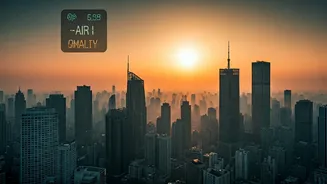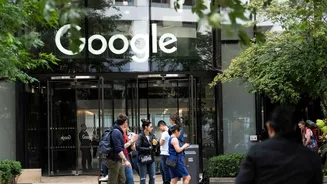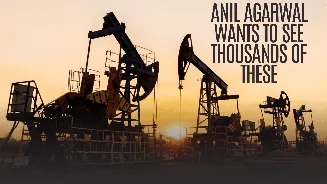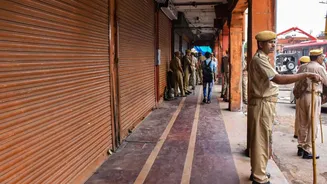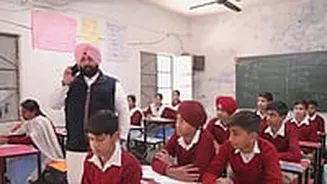Severe AQI Levels
Delhi's air quality has plummeted to 'severe' levels in the wake of Diwali celebrations. This classification signals an extremely hazardous environment,
posing serious health risks to all residents. The Air Quality Index (AQI) readings across various areas of the city have indicated alarming figures, signaling a critical situation. This concerning spike in pollution has prompted widespread criticism and anxiety among the population, who are struggling with breathing issues and related problems. The intensity of this year's post-Diwali pollution has led residents to voice their concerns via social media and other platforms, with some describing the city as a 'gas chamber'. This comparison highlights the severity of the situation and underscores the need for immediate measures to counter the effects of pollution.
Health Implications Emerge
The 'severe' air quality in Delhi brings about significant health risks for its inhabitants. Prolonged exposure to such high levels of pollutants can lead to several health complications, including respiratory issues, aggravated asthma, and other ailments. Individuals are increasingly reporting symptoms like throat irritation, burning eyes, and breathing difficulties. These symptoms indicate the direct effects of air pollution on the body. Children, elderly individuals, and those with pre-existing conditions are especially vulnerable to these health risks. Healthcare professionals are also raising concerns about a potential increase in patients seeking treatment due to the deteriorating air quality. The situation calls for vigilance and prompt actions to mitigate the health hazards posed by Delhi's toxic air.
Public Reaction and Concern
The public is expressing mounting concern over Delhi's air quality. Social media platforms are flooded with complaints, criticisms, and calls for action. Residents are voicing their frustration and fear, sharing their experiences with breathing difficulties and other health concerns. The hashtag #DelhiAirPollution has gained momentum, as people from all walks of life are using it to highlight the problem. Many residents have raised the issue of firecrackers, which are considered to be a key driver in the pollution spike. There's a shared sense of urgency as people call for governments, authorities, and individuals to implement and adhere to stricter measures. The collective response showcases a rising awareness of the gravity of the environmental crisis and the urgent need for comprehensive solutions.
Seeking Remedial Solutions
Addressing Delhi's severe air quality issue calls for comprehensive actions. Implementing and strictly enforcing regulations on pollution sources, such as industrial emissions, vehicle pollution, and construction activities, should be prioritized. Promoting the adoption of cleaner technologies, like electric vehicles, and encouraging public transportation are essential steps in the right direction. Additionally, controlling the burning of crop residue and improving waste management practices can reduce emissions. Enhancing public awareness programs and empowering citizens to participate in efforts to combat air pollution are essential for sustainable change. Collective action involving government agencies, environmental organizations, and the general public, is crucial to alleviate the air quality crisis and protect the well-being of Delhi's citizens.
